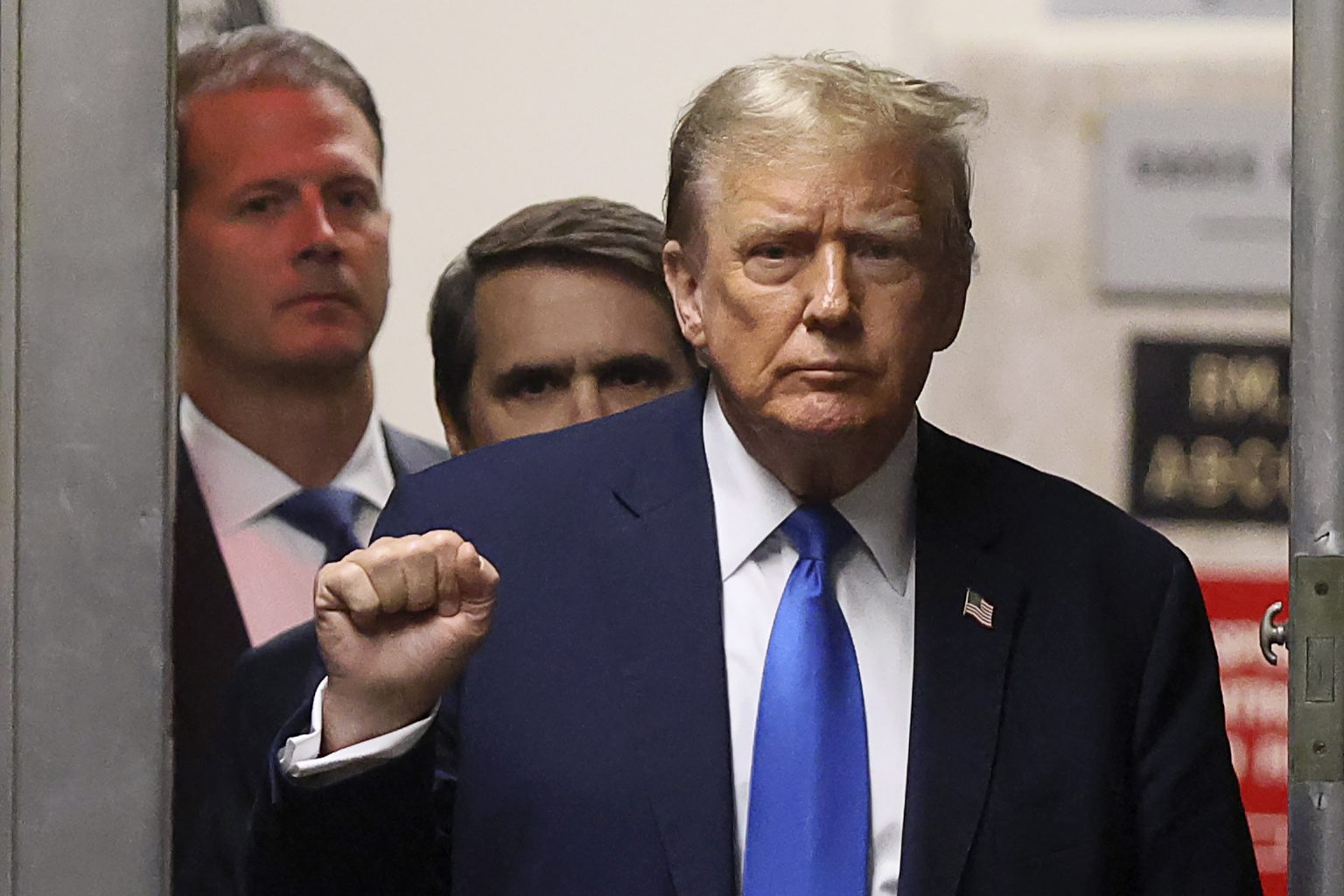Former President Donald Trump and his legal team were granted access to private information by the judge presiding over his criminal case in New York after concerns were raised by potential jurors about their identities being revealed. Judge Juan Merchan agreed that it was necessary for Trump’s attorneys to know the current and previous employers of potential jurors, but he ruled that this information did not need to be publicized by the press. Prosecutors had suggested that jurors no longer answer two identifying questions regarding their current and prior employers, which Trump’s team objected to. The jury selection process continued, with one juror expressing concerns about impartiality due to questioning from friends and family, leading to her dismissal.
The trial, which involves a hush money payment made by former Trump fixer Michael Cohen to adult film actress Stormy Daniels in the lead up to the 2016 presidential election, has garnered significant attention. Trump is facing 34 felony counts of falsifying business records, becoming the first former president to be indicted and stand criminal trial. Prosecutors allege that Trump reimbursed Cohen for the payment and other expenses but classified them as legal fees. Trump has pleaded not guilty to all charges. The court aims to seat the remaining alternates on Friday and begin opening remarks as scheduled on Monday.
Thursday saw further challenges in the jury selection process, as another juror selected on Tuesday returned to express annoyance about the amount of information being made public. He was also excused from the trial. By the end of the day, the jury count reached 12 jurors and one alternate, with plans to seat the remaining alternates on Friday. Judge Merchan ruled that prospective jurors would continue to answer questions about current and former employers but instructed the press not to report those answers, emphasizing the need for an anonymous jury to ensure a fair trial.
Merchan also warned the press to refrain from reporting on physical descriptions or accents of potential jurors to avoid giving identifying details. He emphasized the importance of maintaining anonymity for the jurors who will decide Trump’s case. The judge acknowledged that the amount of information about potential jurors was becoming a problem for the trial but maintained that certain details, such as employment information, were necessary for the court to know. Trump’s legal team raised concerns about the sudden ruling to strike the employer questions from the questionnaire, arguing that the prosecution knew this could pose problems from the beginning.
Despite the challenges in jury selection and concerns about anonymity, the trial is set to move forward with opening remarks scheduled to begin on Monday. Trump’s criminal case represents a significant legal milestone as the first former president to face indictment and stand trial. The hush money payment allegations have drawn attention to the case, with prosecutors claiming that Trump reimbursed Cohen for the payment to Daniels but falsely classified it as legal fees. As the trial continues, the focus remains on ensuring a fair and impartial jury selection process while upholding the legal standards of the court.


